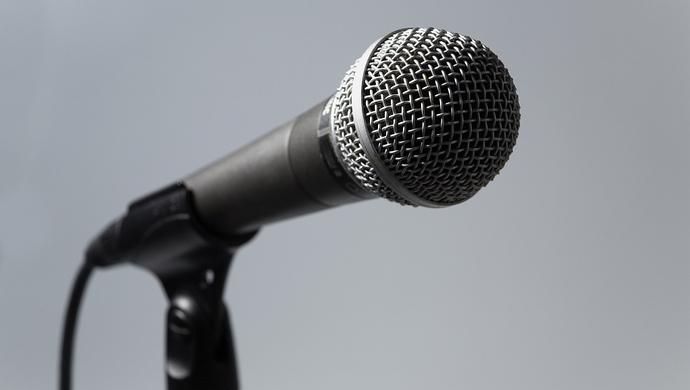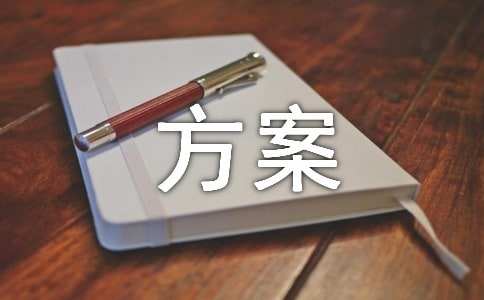初二英语的知识点总结第1篇简单句的五种基本句型“主语+谓语”(即“主谓”句型)例:TheyarrivedinHarbinyesterday分析:“they”(主语)“arrived”(谓语)。“主语+下面是小编为大家整理的初二英语知识点总结必备6篇,供大家参考。

初二英语的知识点总结 第1篇
简单句的五种基本句型
“主语 + 谓语”(即“主谓”句型)
例:They arrived in Harbin yesterday
分析:“they”(主语)“arrived”(谓语)。
“主语 + 谓语 + 宾语”(即“主谓宾”句型)
例:I study
分析:“I”(主语)“study”(谓语动作)“English”(宾语即动作涉及的对象)。
“主语 + 谓语 + 间接宾语 + 直接宾语”(即“主谓双宾”句型)
例:Our teacher taught us
分析:“our teacher”(主语)“教”(谓语动作)“us”(间接宾语)“English”(直接宾语)。
“主语 + 谓语 + 宾语 + 宾语补足语”(即“主谓宾宾补”句型)
例:He asked her to go
分析:“he”(主语)“asked”(谓语动作)“her”(宾语即动作涉及的对象)“to go there”(补语—补充说明宾语做什么)。
“主语 + 系动词+ 表语”(即“主系表”句型)
常用的系动词有be, keep,lie, remain, stand, become, fall, get, go, grow, turn, look, feel, seem, smell, sound, taste, 等。
例:I am a 我是一名老师
分析:“I”(主语)“am”(系动词)“a teacher”(表语—即表明主语的身份)。
初二英语的知识点总结 第2篇
重点句型
①--When did you do on vacation?
--I went to New York
②P3 How did you like it? 你觉得它怎么样?
知识点梳理
①P2 We took quiet a few photos 我们在那拍了很多照片。
②P2 I just stayed at home most of the time to read and
我大多数时间只是待在家看书以及休闲。
③P3 Why didn’t you buy anything for yourself? 为什么你不给自己买点东西?
④P5 I arrived in Penang in Malaysia this morning with my
我与我的家人今天早上到达位于马来西亚的槟城。
⑤P5 What a difference a day makes! 多么不同的一天啊!
⑥P5 And because of the bad weather, we couldn’t see anything
因为天气很糟糕,我们看不见下面的任何东西。
⑦P5 The food tasted great because I was so
食物尝起来很棒,也许是因为我饿了。
初二英语的知识点总结 第3篇
重点词汇
(anyone, something , nothing, everyone),( myself ,yourself ),seem ,bored , activity, as
重点短语
1、on vacation 去度假 2、stay at home 待在家
3、something special 一些特别的东西 4、quiet a few 很多
5、most of 大多数 5、of course 当然
6、keep a diary 写日记 6、decide to do 决定做某事
7、feel like 感受到 8、 ride bicycles 骑自行车
9、 in the past 在过去 10、enjoy walking 喜欢散步
11、walk up to 爬上 12、start raining 开始下雨
13、because of 因为 14、sound great 听起来不错
15、forget to do 忘记去做某事 16、another two hours另外两个小时
17、from the top of 从顶上。
18、study for tests为考试学习
19、go out with 与某人出去 20、long time no 好久不见。
21、arrive in 到达
初二英语的知识点总结 第4篇
形容词/副词的比较级和最高级
形容词/副词的比较级和最高级的构成规则
(1)单音节词和少数以-er,-ow结尾的双音节单词,比较级在后面加-er,最高级在后面加-est。
① 单音节单词
small→smaller→smallest
short→shorter→shortest
tall→taller→tallest
great→greater→greatest
② 少数以-er,-ow结尾的双音节单词
clever→cleverer→cleverest
narrow→narrower→narrowest
(2)以不发音e结尾的单音节单词,比较级在原形后加-r,最高级在原级后加-st。
large→larger→largest
nice→nicer→nicest
able→abler→ablest
(3)以一个辅音字母结尾的闭音节(即:辅音+元音+辅音)单词中,先双写末尾的辅音字母,比较级加-er,最高级加-est。
big→bigger→biggest
hot→hotter→hottest
fat→fatter→fattest
(4)以“辅音字母+y”结尾的双音节词, 把y改为i,比较级加-er,最高级加-est。
easy→easier→easiest
heavy→heavier→heaviest
busy→busier→busiest
happy→happier→happiest
(5)其他双音节词和多音节词,比较级在前面加more,最高级在前面加most。
beautiful→more beautiful→most beautiful
different→more different→most different
easily→more easily→most easily
(6)有少数形容词、副词的比较级和最高级是不规则的,必须熟记。
good→better→best
well→better→best
bad→worse→worst
ill→worse→worst
old→older/elder→oldest/eldest
many/much→more→most
little→less→least
far →further/farther→ furthest/farthest
形容词和副词比较级的用法
(1)“甲+be+(倍数)+形容词比较级+than+乙”表示“甲比乙…”或“甲比乙…几倍”。
Tom is taller than
汤姆比凯特高。
This room is three times bigger than that
这个房间比那个大三倍。
(2)“甲+实意动词+(倍数)+副词比较级+than+乙”表示“甲比乙…”或“甲比乙…几倍”。
I got up earlier than my mother this
我今天早晨起床比我妈妈还早。
He runs three times faster than his
他跑的速度比他弟弟快三倍。
形容词和副词最高级的用法
(1)“主语+be+the+形容词最高级(+单数名词)+”表示“……是……中最……的”。
Tom is the tallest in his all the
汤姆是他们班上/所有学生当中最高的。
This apple is the biggest of the
这个苹果是五个当中最大的。
(2)“主语+实意动词+(the)+副词最高级+”表示“……是……中最……的”。
I jump (the) farthest in my
我是我们班跳得最远的。
初二英语的知识点总结 第5篇
句子成分
主语:
句子所陈述的对象。
谓语:
主语发出的动作。一般是有动作意义的动词。
宾语:
分为动词宾语和介词宾语,属于动作的承受者。
系动词:
表示状态或状态变化的动词,没有实际的动作意义。如 be, 感官系动词(look, sound, smell, taste 和 feel)、保持类系动词(keep, stay 和 remain)、状态变化类系动词(become、get、turn 和 go)等。
表语:
紧跟系动词后面的成分。
定语:
修饰名词或代词的成分。
状语:
修饰形容词、副词、动词或句子的成分。
补语:
分为宾语补足语和主语补足语。是对宾语和主语的补充说明,与其有主动或被动的逻辑关系。
例如:You should keep the room clean and
你应该让屋子保持干净整洁。
(You是主语, should keep是谓语,the room是宾语,clean and tidy是宾语补足语。)
This kind of food tastes
这种食物吃起来很可口。
(This kind of food是主语, tastes是系动词, delicious是表语。)
注意:主语、谓语、宾语、系动词、表语、补语是一个句子的主干成分;定语和状语是一个句子的修饰性成分,不是主干成分。
初二英语的知识点总结 第6篇
宾语从句
宾语从句的含义
在主句中做宾语的从句叫做宾语从句。
如:She knew that the teacher had seen the
她知道这位老师看过这部电影。
“that the teacher had seen the film”做 knew 的宾语,同时又是由连接词 that 引导的从句,所以它叫做宾语从句。
宾语从句的分类
(1)动词宾语从句:顾名思义,它是位于动词后面的宾语从句。
如:He asked whose handwriting was the best in our 他问我们班上谁的书法最好。
(2)介词宾语从句:顾名思义,它是位于介词后面的宾语从句。
如:I agree with what you said just 我同意你刚才说的话。
(3)形容词宾语从句:顾名思义,它是位于形容词后面的宾语从句。
如:I am afraid that I will be 恐怕我要迟到了。
引导名词性从句的连接词
(1)that:没有含义,在宾语从句中不做成分
(2)whether/if:表示是否,在宾语从句中不做成分。
I don"t know if /whether he still lives here after so many 我不知道这么多年后,他是否还住在这里。
(3)连接代词:what, which, who, whom, whose(在宾语从句中做主、宾、表和定语)
连接副词:where, when, how, why(在宾语从句中做状语)
The small children don"t know what is in their (what 在宾语从句中做主语)
这些小孩子不知道什么在他们的长筒袜里。
Could you tell me why you were late for the meeting this morning?(why 在宾语从句中做原因状语)
你能告诉我为什么你今天早上开会迟到吗?
在做宾语从句的题目时应注意两点
(1)时态:
①当主句是现在时态时,宾语从句可以根据需要使用任何时态。
I don"t know when he will come 我不知道他将何时回来。
He tells me that his sister came back 他告诉我他姐姐昨天回来了。
②当主句是过去时态时,宾语从句必须是一种过去的时态。
She asked me if I knew whose pen it 她问我是否知道这是谁的钢笔。
He said that he could finish his work before 他说他会在晚饭前完成工作。
③当表示客观事实或普遍真理的句子做宾语从句时,任何时候都用一般现在时。
The teacher said that the earth goes round the 老师说过地球绕着太阳转。
(2)语序:任何从句都使用陈述句语序,宾语从句当然也不例外。



